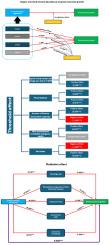关键矿产禀赋对拉丁美洲绿色经济增长的影响
IF 10.2
2区 经济学
0 ENVIRONMENTAL STUDIES
引用次数: 0
摘要
在为应对气候危机和全球变暖而进行全球低碳能源转型的背景下,预计未来几十年对关键矿物--大多数清洁能源技术的必要投入--的需求将激增。然而,从矿山开采关键矿物可能会对环境可持续性和活动所在地公民的社会经济福祉产生重大负面影响。关键矿产对全球净零排放目标的极端重要性及其对可持续发展目标的争议促使我们调查 2000 年至 2020 年关键矿产对 10 个矿产丰富的拉美国家绿色增长的影响。首先,我们从分类和总量两个方面分析了关键矿物质对绿色增长的影响。随后,研究了制度质量对关键矿产与绿色增长之间关系的调节作用。之后,利用面板固定效应阈值回归分析了关键矿产对绿色增长的非线性影响,条件是五个阈值变量的值。最后,利用面板中介分析确定了关键矿物质影响绿色增长的主要渠道。本研究的结论重点如下:从总体上看,关键矿物质有助于提高绿色增长,但其影响主要取决于每种关键矿物质的类型。当与关键矿产相结合时,制度对绿色经济增长的调节作用是模糊的。临界矿物质的影响差异显著,并呈现出非线性,这取决于每个临界变量的值。关键矿产通过五个渠道影响绿色增长:汇率、可再生能源在电力产能中的份额、化石燃料依赖性、政府债务和经济复杂性。本文章由计算机程序翻译,如有差异,请以英文原文为准。

The effects of critical mineral endowments on green economic growth in Latin America
In the context of global low-carbon energy transition for addressing the climate crisis and global warming, soaring demand for critical minerals—essential inputs for most clean energy technologies—is expected in the coming decades. However, extracting critical minerals from the mine might have significant negative impacts on environmental sustainability and the socioeconomic well-being of the citizens where such activities take place. The paramount importance of critical minerals for global net-zero goals and their controversy on sustainable development goals motivated us to investigate the effects of critical minerals on green growth in 10 mineral-rich Latin American countries from 2000 to 2020. Firstly, the effect of critical minerals on green growth is analyzed in both disaggregated and aggregated terms. Subsequently, the moderation effect of institutional quality is examined on the nexus between critical minerals and green growth. After which, the non-linear effect of critical minerals on green growth is analyzed, conditioned on the values of five threshold variables using panel fixed-effect threshold regression. Lastly, the primary channels by which critical minerals affect green growth are identified using panel mediation analysis. The findings of this study are highlighted as follows: In aggregate terms, critical mineral contributes to increasing green growth, but its effect depends largely on the type of each critical mineral. When combined with critical minerals, the moderation effect of institutions on green economic growth is ambiguous. The effect of critical minerals varies significantly and shows non-linearity depending on the values of each threshold variable. Critical minerals influence green growth through five channels: exchange rate, renewable energy share in electricity capacity, fossil fuel dependency, government debt, and economic complexity.
求助全文
通过发布文献求助,成功后即可免费获取论文全文。
去求助
来源期刊

Resources Policy
ENVIRONMENTAL STUDIES-
CiteScore
13.40
自引率
23.50%
发文量
602
审稿时长
69 days
期刊介绍:
Resources Policy is an international journal focused on the economics and policy aspects of mineral and fossil fuel extraction, production, and utilization. It targets individuals in academia, government, and industry. The journal seeks original research submissions analyzing public policy, economics, social science, geography, and finance in the fields of mining, non-fuel minerals, energy minerals, fossil fuels, and metals. Mineral economics topics covered include mineral market analysis, price analysis, project evaluation, mining and sustainable development, mineral resource rents, resource curse, mineral wealth and corruption, mineral taxation and regulation, strategic minerals and their supply, and the impact of mineral development on local communities and indigenous populations. The journal specifically excludes papers with agriculture, forestry, or fisheries as their primary focus.
 求助内容:
求助内容: 应助结果提醒方式:
应助结果提醒方式:


